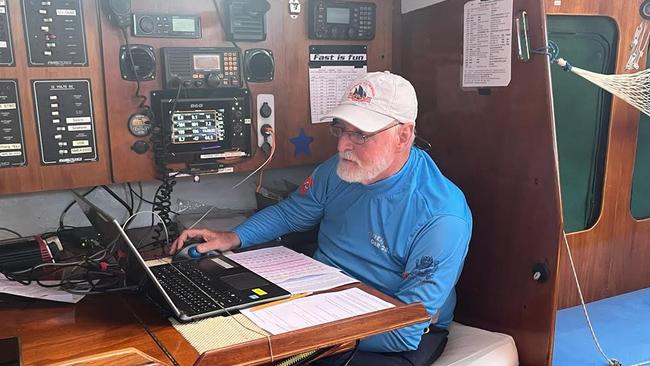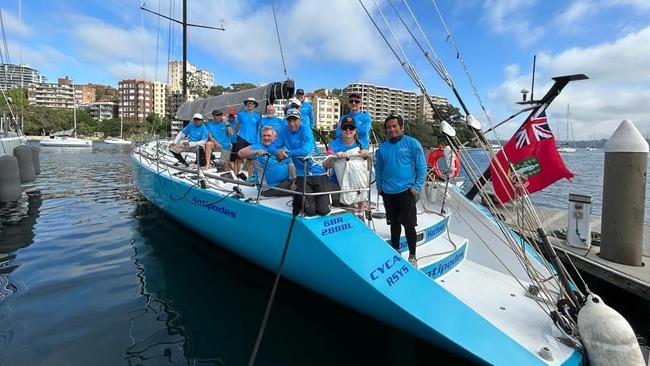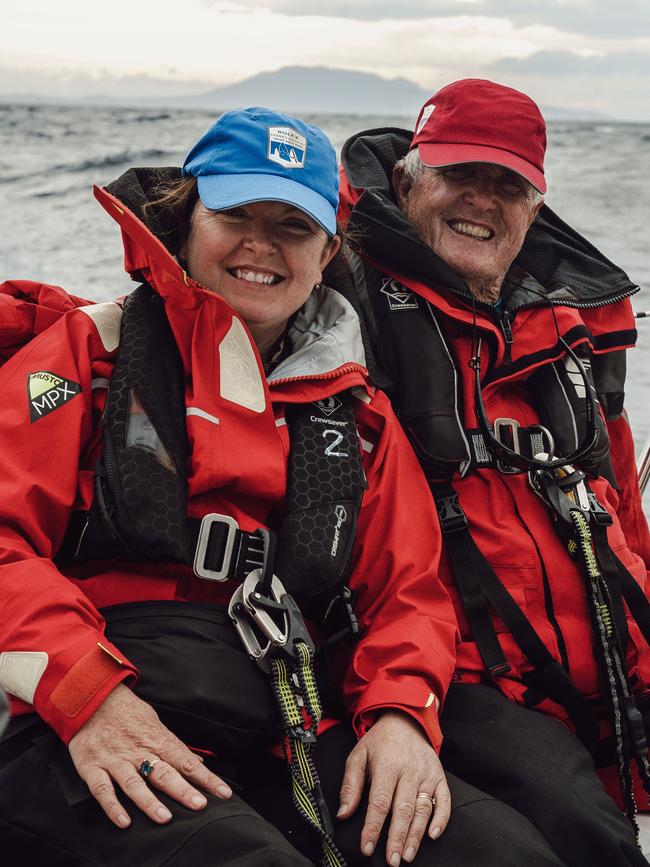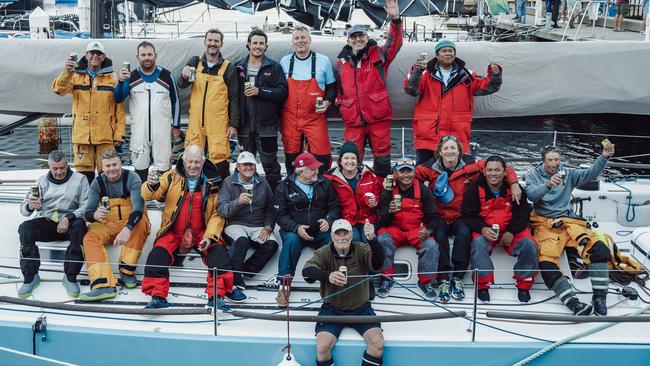Sydney to Hobart’s challenge still thrills investment banker Geoff Hill
Global banker Geoff Hill took part in the fateful 1998 Sydney to Hobart which claimed six lives and now he’s gearing up for his 20th crossing in one of the world’s great ocean races.

Sydney businessman Geoff Hill remembers the fatal 1998 Sydney to Hobart yacht race when his boat, Antipodes, was in trouble off the south coast of NSW and he could hear radioed SOS calls from fellow sailors.
“We suffered a bit of damage, but everyone was OK,” says Hill, the chairman of investment company International Pacific Securities, who is preparing for his 20th Rolex Sydney to Hobart Yacht race aboard Antipodes II.
“We were very lucky, but it was harrowing when you could hear all the rescue SOS (calls) going up.
“We could hear them on the radio. There was no one near us, but we were fighting for survival ourselves.”
In the end Hill and his crew pulled into the southern NSW coastal town of Eden, a move recorded as “prudent seamanship”, but in thate fateful race 55 sailors were rescued, six died and five yachts were lost.
Hill, a long-time investment banker, corporate adviser, investor and ocean sailor, loves the Australian race, despite the big increase in insurance premiums and the cost of meeting much stricter regulations.

This year he will set out on his 20th race, and his second on Antipodes II – the Santa Cruz 72 once owned by US billionaire Bill Muldoon.
The crew of 18 will include his daughter, Natasha, on her second Rolex Sydney to Hobart as well as navigator Lindsay May doing his 50th.
Hill’s harrowing experience in the 1998 race did not deter him from entering subsequent Sydney to Hobarts. His best memory is 2006, when he was on an old wooden S&S 47, Love and War, skippered by May, which was the overall winner.
Hill, who once ran Morgan Grenfell Australia which had clients such as John Spalvins and Alan Bond, before going out on his own, did some sailing as a boy growing up in Sydney.
But his taste for world-class yachting was sparked by a visit to New York in 1983, when he was invited by Bond’s then managing director, Peter Beckwith, to head to Newport, Rhode Island to watch the final races of the historic America’s Cup. Bond’s Australia II famously won the series, taking the trophy away from the New York Yacht Club that had held it for more than 130 years.
“I watched them win the last six races and I got hooked on sailing again,” Hill says.
“When I came back to Sydney, I bought a yacht. I went sailing with the kids and then got interested in doing a bit of racing.”

He did some across the Atlantic before a move to Hong Kong resulted in him sailing in Asia on his current Antipodes.
“We did OK for an old boat. That’s the best way I can describe it,” he says.
The advent of Covid-19 in 2020 brought Hill back to Sydney, where he focused more on racing closer to home, including the Darwin to Dili, and Darwin to Ambon races, where Antipodes holds the current race records, and the inaugural Sydney to Auckland yacht race in October this year where it won line honours.
Hill says the Rolex Sydney to Hobart now divides into two categories – one group of what he calls “chequebook racing” with the big maxis, backed by high-profile owners willing to spend millions of dollars to compete in these races, hiring a professional crew. The other group are “ordinary” sailors who still see it as something they do for the love of the sport with their mates.
“The pleasing thing about the Sydney to Hobart is that you still see a lot of your average yachties wanting to do it,” he says.
“While it doesn’t get much focus, these are the average guys – not the millionaires – who love the sport. They have saved up or got together with mates to buy a boat and go to Hobart. It’s a challenge, and it is still regarded as one of the better ocean races of the world.”
This year’s race does feature some wealthy Australians such as John “Herman” Winning Jnr, of the Winnings appliance family, who has chartered Comanche for this year’s race, sailing it under the name of Andoo Comanche in his fourth Sydney to Hobart.
Also taking part is entrepreneur Christian Beck, founder of legal software company LEAP, who will be skippering his LawConnect – also on his fourth Sydney to Hobart.
Malaysian businessman Seng Huang Lee, the chairman of the Mulpha property group and former chair of Australian retirement living company Aveo, will hope his super maxi SHK Scallywag (a Sydney to Hobart veteran, formerly the Syd Fischer-owned Ragamuffin) does well in this year’s race.
But this year’s event is lacking some of the big Australian names of the past, including Marcus Blackmore or the Oatley family, famous for their Wild Oats yachts, or the big American names such as Oracle co-founder Larry Ellison.
It’s also missing the glamour of former Australian supermodel Kristy Hinze, the co owner of Comanche with her husband, Netscape founder Jim Clark, who won the race in 2015.
Hill says ocean yacht racing in Australia sees a lot of business people come and go.

“They spend a couple of years at it and then they discover how expensive it is, or they are not winning, or both, and they give it up,” he says.
He says Covid-19 has affected ocean racing, diminishing the enthusiasm for the sport.
“Covid affected offshore yachting,” he said. “A lot of people reduced their exposure. In Hong Kong there was an offshore fleet of about 30, which is now down to around 10.
“The number of people who can afford it or who want to keep doing it has declined, but trophy events like Fastnet in the UK or the Rolex Sydney to Hobart continue to attract business people.”
At the top end, big-name ocean racing provides business people with the competitive challenge they thrive on, with the public exposure some like.
“It’s personalised exposure which is pretty good for the ego,” he says. “If you look at the America’s Cup these days, it is nearly all media and image driven.”
The high profile races can also provide good exposure for companies.
Hill, who now has business interests in the US in the mining industry, says sailing has many elements that appeal to successful business people.
“You have a leader and you have a set of rules and you have to have teamwork to achieve,” he says. “These are elements which are useful in business.”
Hill likes the camaraderie of ocean yachting.
“It’s my sport,” he says. “It’s one of those sports where teamwork and mateship are important.”




To join the conversation, please log in. Don't have an account? Register
Join the conversation, you are commenting as Logout